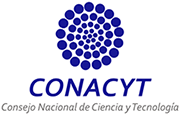IMPROVEMENT AND EXPIRATION OF SOCIAL BENEFIT ARCHITECTONIC PROJECTS IN MEDELLIN, COLOMBIA AND MONTERREY, MÉXICO
DOI:
https://doi.org/10.20983/decumanus.2016.1.1Keywords:
Social urbanism, Projects of Social Benefit, Biblioteca Parque España, Centro Comunitario Bicentenario IndependenciaAbstract
Since the decade of 1990, looking for presenting positive impacts in communities where they serve, some Latin American governments have implemented urban-architectonic projects. These projects have been framed under the notion of social urbanism, coming from Medellín, Colombia. The theoretical scheme of this work focus on urban-architectonic strategies designed for solving social problems in Latinamerican conflicting neighborhoods, using the Social Integration and Citizen Participation operative concepts. Our methodology includes the analysis of strategies that in a certain moment had a social improvement intention, for determining if they really have been successful or if during the time they present tendencies to fail. In other words, we are interested for knowing if with the time passage the projects become important part of the inhabitants’ daily life. The main objective of this research is to show the effects of the Biblioteca Parque España in Medellín, Colombia, and the Centro Comunitario Bicentenario Independencia in Monterrey, Mexico in the population. Both projects are important for understanding the social benefit intentions in Latin America, since the architecture and urbanism interventions. In this sense, we analyze the political context that allowed the existence of these projects, the perception of the users of these facilities, as well as the property feeling that these equipments have generated in those who live in surrounding areas. Between the findings we emphasize that, although the project is located in an area that traditionally is classified as conflicting, its influence can transfer the proximity barriers, or even become an attraction center. Also, we remark that if the strategy is not accompanied by social programs and from the real estate control, it can derive in the phenomenon known like gentrification.Downloads
References
Alcaldía de Medellín (2011) Laboratorio Medellín, Catálogo de diez prácticas vivas 1ra edición. Medellín, Colombia.
Aparicio, C., Ortega M. E., Sandoval, E. (2011). La segregación socio-espacial en Monterrey a lo largo de su proceso de metropolización. En Región y sociedad (pp. 173-207) Hermosillo: El Colegio de Sonora.
Arzaluz, S. (2004) Experiencias de participación ciudadana en municipios metropolitanos del Estado de México y Nuevo León. En Ziccardi, A. (Ed.) Participación Ciudadana y Políticas Sociales del Ámbito Local (pp. 167-184) México: UNAM, INDESOL, COMECSO.
Bosoer, F. (2015) Sergio Fajardo: la educación como motor del cambio. En Clarín, Buenos Aires, Arte Gráfico Editorial Argentino S.A. Recuperado diciembre 2015 de: http://www.clarin.com/opinion/Medellin-Antioquia-Sergio_Fajardo Proyecto_Educar_2050_0_1434456613.html
Contreras, C. (2010) Colores y ecos de La Colonia Independencia. Ed. Municipio de Monterrey, Comisión Estatal para la Conmemoración del Bicentenario del inicio de la Independencia Nacional y el Centenario de la Revolución Mexicana, Colegio de la Frontera Norte: Monterrey.
Corti, A. (2013) Socialización e integración social. Fundamentos en Humanidades
Recuperado Septiembre 2013 de: http://www.redalyc.org/articulo.oa?id=18400209
Gallino, L. (2005) Diccionario de sociología, 3era edición, México: Siglo XXI editores.
Gordon, P. (1993) Robert Owen (1771-1858) Perspectivas: revista trimestral de educación comparada, París, UNESCO: Oficina Internacional de Educación, vol. XXIV, nos 1-2, págs. 279-297.
INEGI (2013) Censos y conteos de población y vivienda, Aguascalientes, Instituto Nacional de Estadística Geografía e Informática, Recuperado junio, 2013 de:
http://www.inegi.org.mx/est/contenidos/Proyectos/ccpv/default.aspx.
Jacobs, J. (2012) Muerte y vida de las grandes ciudades, 3ra edición, España: Capitán Swing Ediciones.
Lara, F (2011) Arquitetura quae sera tamen, Cadernos do PROARQ Rio de Janeiro, Universidade Federal do Rio de Janeiro, Faculdade de arquitetura e Urbanismo, Programa de Pós-graduação em Arquitetura - Ano 1 (1997), n. 17, dez 2011 Semestral
Martin, G, Fernández, R, Villa, L. (2009) Medellín, transformación de una ciudad, 1ª impresión, Colombia: Editado por el BID, Alcaldía de Medellín.
Mellado, R. (2001) Participación ciudadana institucionalizada y gobernabilidad en la ciudad de México. 1era Edición, México: PyV editores.
Mockus, A, Murraín, H, Villa, M.(2012) Antípodas de la violencia. Desafíos de cultura ciudadana para la crisis de (in)seguridad en América Latina. Estados Unidos: Ed. Banco Interamericano de Desarrollo.
Montaner, J, Muxí, Z. (2011) Arquitectura y política ensayos para mundos alternativos, 1ª impresión, España: Ed. Gustavo Gili.
Peña, L. (2011) Las bibliotecas públicas de Medellín como motor de cambio social y urbano de la ciudad. Textos universitaris de biblioteconomia i documentació, número 27. ISSN 1575-5886, Diciembre 2011.
Prada, D. (coordinadora) (2005) Bogotá una gran escuela: experiencias nacionales e internacionales. Revista del Instituto para la Investigación Educativa y el Desarrollo Pedagógico - IDEP, Vol. 7, octubre 20 05.
Sexenio Nuevo León (2014) Alcaldes de NL asisten a conferencia con ex secretario de Desarrollo Social de Medellín. Recuperado de http://www.sexenio.com.mx/nuevoleon/articulo.php?id=22158 Consultado Junio 2014.
Theodore, N, Peck, J y Brenner, N. (2009) Urbanismo Neoliberal: la ciudad y el imperio de los mercados. Temas Sociales no. 66.
UCL The Bartlett (2014) El "Urbanismo Social" de Medellín, Colombia. http://www.bartlett.ucl.ac.uk/dpu/metrocables/dissemination/Brand-2010.pdf. Recuperado Enero 2014.
Rodríguez, N. (2011) Jorge Melguizo: "lo contrario a la seguridad no es la inseguridad, es la convivencia" Red Cultura. Recuperado de http://redcultura.com/php/Articulos802.htm. Consultado Junio 2014.
Zea, L. (2005) El positivismo en México: Nacimiento, Apogeo y Decadencia. 9 reimp, México: Editorial Fondo de Cultura Económica.
Downloads
Published
How to Cite
Issue
Section
License
Copyright (c) 2016 DECUMANUS

This work is licensed under a Creative Commons Attribution-NonCommercial-ShareAlike 4.0 International License.











